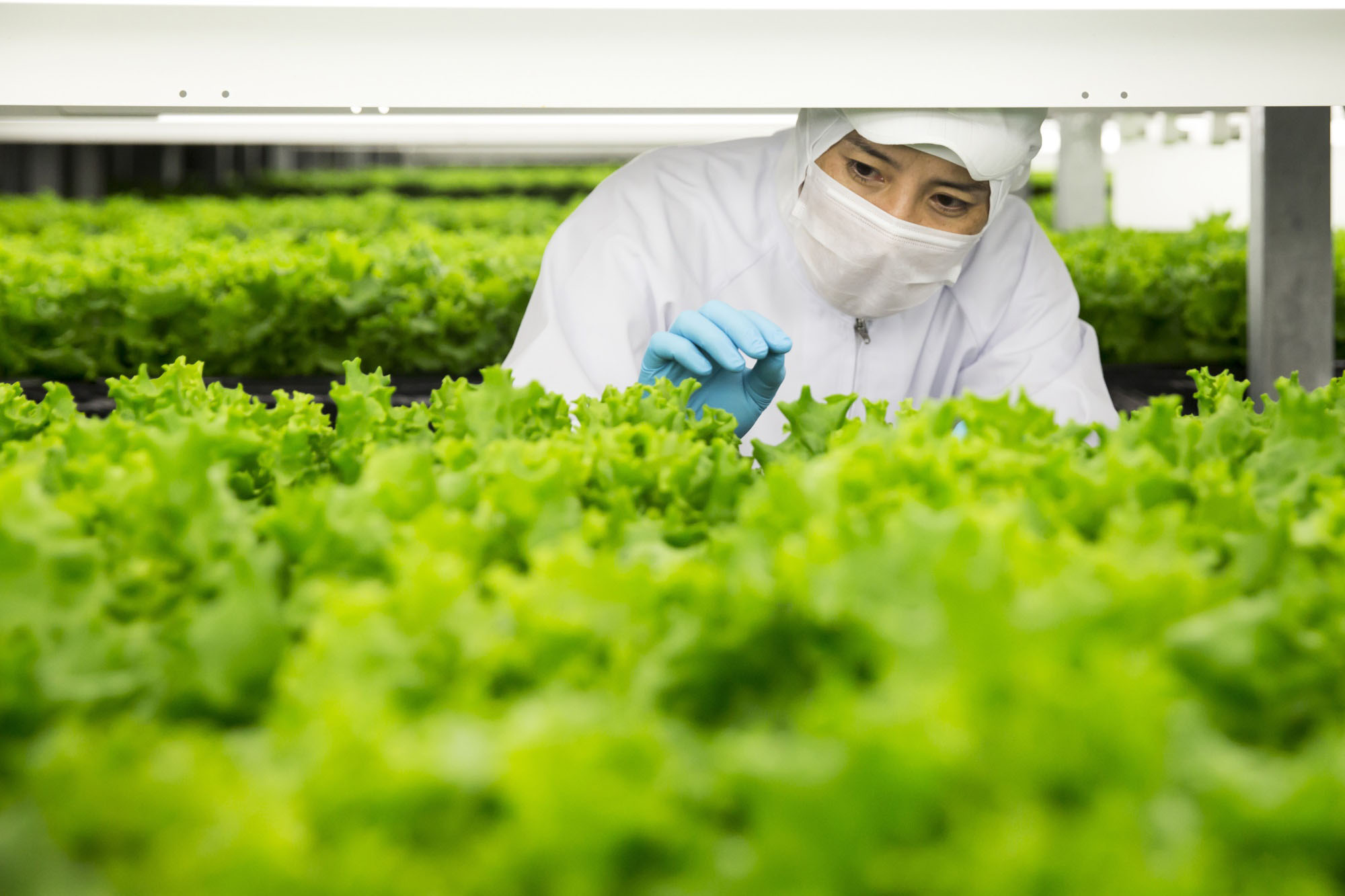In the hills between Kyoto, Osaka and Nara prefectures, surrounded by technology companies and startups, Spread Co. is preparing to open the world's largest automated leaf-vegetable factory.
It's the company's second vertical farm and could mark a turning point for vertical farming — keeping the cost low enough to compete with traditional farms on a large scale.
For decades, vertical farms that grow produce indoors without soil in stacked racks have been touted as a solution to rising food demand in the world's expanding cities. The problem has always been reproducing the effect of natural rain, soil and sunshine at a cost that makes the crop competitive with traditional agriculture.



